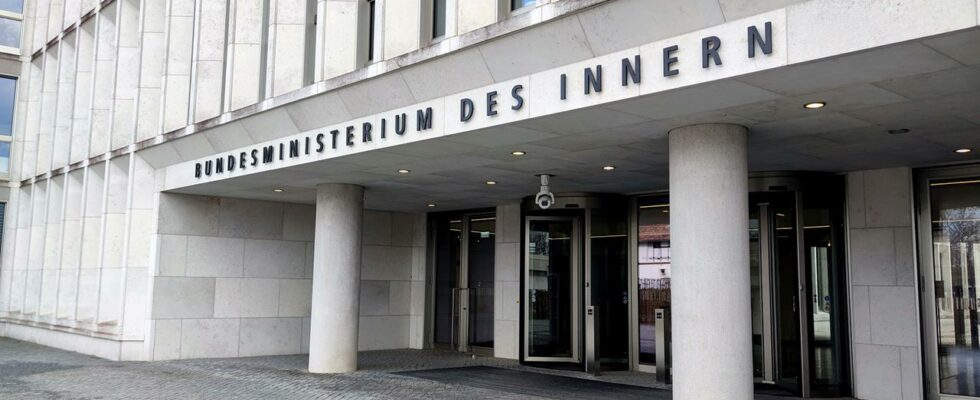exclusive
With regard to migration, the question of whether asylum procedures can also be carried out in third countries is repeatedly raised. The Federal Ministry of the Interior concludes that there would be many difficulties.
After extensive expert hearings, the “preliminary conclusion” of the Federal Ministry of the Interior (BMI) is cautious: a third-country solution is legally “not fundamentally” excluded. “However, many experts expressed skepticism and even criticism about the legal and actual implementation options,” says the report, which was submitted to the ARD Capital Studio exclusive. Below is a list of concerns.
In recent months, the third-country solution has been touted as the ultimate answer to the migration question. An idea that has been discussed for decades but has never been implemented in Germany. Similar attempts are underway in Great Britain and Italy – and so the federal states in Germany have put the idea back on the political agenda and commissioned the Federal Ministry of the Interior to examine it.
Role models from Great Britain and Italy
The third country solution is often referred to as the “Rwanda model”. This refers to an agreement between Great Britain and Rwanda. According to the original model, refugees who had already arrived in Great Britain were to be brought to Rwanda permanently in order to apply for asylum there and, if necessary, receive protection – under Rwandan law. They were not to return to Great Britain.
An agreement between Italy and Albania has also recently attracted attention. The two countries have agreed to bring people who are picked up on the high seas to Albania instead of Italy. The asylum procedures will then be carried out there, but under Italian law and by Italian authorities. Those in need of protection will then be taken in in Italy. The implementation of the agreement was delayed and has now been announced for August.
Rwanda model not transferable
The report from the Federal Ministry of the Interior now states that, with regard to Germany, it has become apparent “that extraterritorial models such as the so-called British Rwanda model and the so-called Italy-Albania model would not be transferable in this form under the existing legal and practical framework conditions.” The legal framework conditions are different to those for Great Britain due to EU law.
And unlike Italy, Germany is not located on the Mediterranean. Anyone seeking protection in Germany has already reached national territory – so German and European law applies to them. This is different in the case of refugees who are picked up on the high seas on their way to Italy.
Uncertain effect, high costs
After the hearings, the ministry also remained unclear how such a third-country solution could prevent further migration and at the same time avoid prison-like camps. The experts also had doubts about the cost-benefit ratio. According to media reports, Italy has earmarked 675 million euros for the next ten years to implement the agreement with Albania, of which 142 million euros will be paid this year. According to the agreement, Italy will bear all “direct and indirect” costs.
In addition, there would be possible intangible costs if the perception arose that Germany was withdrawing from global refugee protection at the expense of other, much poorer countries, said the experts who were consulted. This is offset by an “uncertain benefit in terms of reducing irregular migration to Germany”. Several experts pointed out that it has not yet been proven whether the models would have a deterrent effect in return.
More difficulties
The difficulties that Germany currently has with deportations would also simply be shifted: “There were also concerns about the various models with regard to the feasibility of returning asylum seekers who are required to leave the country from the corresponding facilities in third countries.”
In addition, third countries willing to cooperate – “if they exist” – would have to meet a whole series of requirements. Some experts pointed to possible negative effects on development and foreign policy and the risk of being dependent on other governments in migration policy, the report says.
A total of five hearings
The Federal Ministry of the Interior has taken its time to examine the matter. A total of five hearings have taken place since the end of February. 23 German-speaking experts and international representatives with different professional backgrounds – legal, sociological and political science – were invited.
At the federal-state meeting next Thursday, the status report will be discussed together with Federal Minister of the Interior Nancy Faeser. As a precautionary measure, the BMI has already announced in the report that it intends to “fully” evaluate the experts’ opinions and also to closely examine the implementation of the “Italy-Albania” and the British “Rwanda model” – this is expected to provide further insights.
The report does not address the question of which states could even be considered as negotiating partners for a third-country model of any kind.


